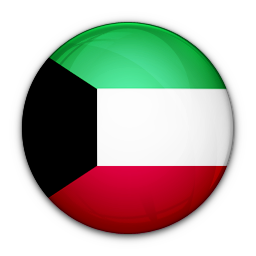According to a recent report by the ratings agency Moody’s, Kuwait has solid financial conditions. Moody’s Investors Service affirmed Kuwait’s government bond rating at Aa2, asserting the country’s fiscal strength, given the availability of natural oil reserves sufficient for 89 years to come; the solid financial conditions similar to those of Singapore and the United Arab Emirates; the low government debt; the accumulation of financial surpluses over several years; the continuation of the current account surplus; and Kuwait’s important presence in international investment fields.
These key factors confirm the strength of the Kuwaiti economy, as the annual average oil revenues reached about $100 billion with an estimated production of about 2.7 million barrels per day. The GDP for 2013 was estimated at around $200 billion, which means that the average annual per capita income is equal to $50,000, taking into account that Kuwait is home to 4 million people, including 1.2 million Kuwaiti nationals. Moody’s indicated that Kuwait owns $400 billion worth of assets in its sovereign wealth fund, i.e., twice the GDP.
There is no doubt that these assets generate adequate returns to Kuwait, thus consolidating its sovereign revenues. Kuwait was able to boost the value of these assets, given its ability to achieve significant financial surpluses in recent years, which confirms its ability to invest new assets in diversified investments around the world. Even if the surpluses fall in the coming years due to an oil price drop, the government can maintain a good level of surplus due to the rationalization of current spending.
The report raised an important point, which is that oil enabled Kuwait to build important financial wealth, ensure good living conditions and promote its economic role in the region and the world. Yet the report also revealed that the Kuwaiti economy faces fluctuations in the oil market and the prospect of falling prices in the coming years. The same report predicted that the economic growth rate would be up to 3% this year compared with 0.8% in 2013. However, reaching a 3% growth rate depends on what will happen in the oil markets in the coming months. If the markets and the demand for oil recovers, then such a percentage could possibly be reached.
However, oil prices are decreasing; therefore it is necessary for Kuwait to cautiously adapt its fiscal situation and take procedures leading to a significant rationalization of spending. The Kuwaiti government emphasized rationalization directives, and the possibilities of modifying commodity subsidies policies and putting an end to wage and salary increases in the coming years. The growth in spending declined to some extent, which means that the rationalization measures are going in the right direction. Rationalization challenges are not easy as they are concentrated in salaries, wages and commodity subsidies.
The government provides jobs for Kuwaitis entering the labor market in government departments and public sector institutions, while the private sector remains unable to attract these citizens to work in its various installations and institutions, despite the workforce support program funded by the government to encourage work in the private sector. There is a disparity in benefits and cadres between the two sectors, not to mention the different work regulations. Moreover, graduates of the Kuwaiti educational system have poor skills and low levels of competence that do not meet the requirements of professions in the private sector. Education in Kuwait does not provide opportunities for adequate vocational education in line with the standards adopted in several countries exporting skilled workforces.
The report emphasized the demographic challenge, as those under the age of 24 account for 60% of Kuwaitis, and this is a challenge that requires rational policies and development programs that assert the importance of human development and seek to curb the rapid population growth of citizens exceeding 2.8% per year. The reliance by the labor market on emigrant workers remains a structural defect unless plans are programmed to develop vocational education in parallel with financial reforms that ease the burden of all types of subsidies, in order to promote the rationalization trend in consumer and social behaviors among citizens. However, under a political system characterized by its populism and its attempt to satisfy citizens’ immediate needs, will the government be able to address these structural defects in public spending?
Kuwait’s government and National Assembly must seek to exploit the adequate fiscal situations to develop the infrastructure, increase the capacity of public utilities, expand road networks and construct collective transportation systems. Capital spending must be increased through the state budget mechanisms, while the private sector must be empowered to contribute to projects through privatization programs and by opening fields of activities that used to be closed to the private sector in vital sectors such as oil, utilities and services.
More important, Kuwait, which was able to provide significant funds to be invested through its sovereign wealth fund and develop quality of life, is still highly dependent on the oil economy and has yet to diversify its economic base. The private sector in the country also remains largely dependent on government activity and its current and capital spending while it is supposed to play a pivotal role in economic development and to have broad responsibilities. This requires a political administration that believes in the role of the private sector and allows it to work directly or in partnership with the public sector in specific fields. However, the main challenge is the human development challenge, as the country requires a comprehensive and invasive review of the educational system in order to achieve compatibility between labor market requirements and the graduates of the educational system.


GIPHY App Key not set. Please check settings